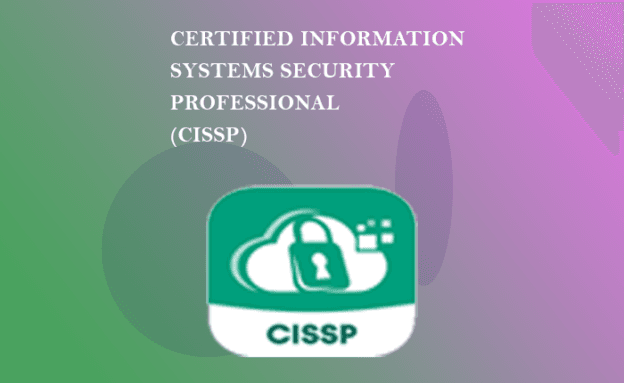CISSP Certification Training Course

About Course
The CISSP (Certified Information Systems Security Professional) Certification Training Course equips cybersecurity professionals with advanced skills in designing, implementing, and managing security programs. Covering eight domains, including security and risk management, asset security, and cryptography, it addresses the breadth and depth of information security concepts. Participants learn to protect against cyber threats, secure applications, and establish robust security policies. With real-world scenarios and practical knowledge, this training prepares individuals for the CISSP exam, a globally recognized credential validating expertise in information security, risk management, and governance. It enhances career prospects in roles like security analyst, manager, or consultant.
What Will You Learn?
- 1. Global Recognition
- 2. Career Advancement
- 3. Comprehensive Knowledge
- 4. Industry Demand
- 5. Risk Management
- 6. Networking Opportunities
- 7. Job Security
Course Content
Module 1
-
1.01 Overview
12:03 -
Quiz Module-01
-
Section 1: Conceptual Questions
-
Section 2: Scenario-Based Questions
-
Section 3: Research-Based Questions
Module 2
-
2.01 Security and risk management
07:12 -
2.02, 2.04 Information security management, Information security management and governance
06:46 -
2.03 Security controls
08:39 -
2.05 Goals, missions, and objectives
08:10 -
2.06 Due care
07:21 -
2.07 Security policy
09:58 -
2.08 Compliance
08:14 -
2.09, 2.10 Cybercrimes, Legal systems
18:33 -
2.11 Intellectual Property (IP) law
08:18 -
2.12 Privacy
05:50 -
2.13 General data protection regulation
05:47 -
2.14 Security
08:53 -
2.15 Risk analysis and types
09:14 -
2.16 Security control assessment
05:15 -
2.17 Threat modeling
06:17 -
2.18 Supply-chain risk management
07:15 -
2.19 Third-party management
07:55 -
2.20 Business continuity planning and phases
05:03 -
2.21 Personal security management
05:03 -
2.22, 2.23 Security awareness training, Program effectiveness evaluation
11:35 -
Quiz Module-02
-
Section 1: Conceptual Questions
-
Section 2: Scenario-Based Questions
-
Section 3: Research-Based Questions
Module 3
-
3.01 Information and data classification
03:51 -
3.02 Data life cycle and management
09:49 -
3.03 Different roles
11:17 -
3.04 Data remanence
09:30 -
3.05 Privacy
05:40 -
3.06 Data states
04:32 -
3.07 Data loss prevention
12:02 -
Quiz Module-03
-
Section 1: Conceptual Questions
-
Section 2: Scenario-Based Questions
-
Section 3: Research-Based Questions
Module 4
-
4.01 Security engineering and architecture
13:02 -
4.02, 4.03 Security models, Evaluation criteria
08:11 -
4.04 System security
11:33 -
4.05, 4.06 CPU, Memory
06:48 -
4.07 Security mode
05:54 -
4.08 Cloud Computing
09:05 -
4.09 IoT
09:37 -
4.10 Industrial control system (ICS)
06:47 -
4.11 Cryptography
05:23 -
4.12 Encryption methods
04:52 -
4.13 DES
03:13 -
4.14 Asymmetric cryptography
06:17 -
4.15 Public key infrastructure
09:29 -
4.16 Cryptanalysis
09:06 -
4.17 Key management
08:10 -
4.18 Critical path analysis
05:34 -
4.19 Site location
07:17 -
4.20 Fire
09:21 -
4.21 HVAC
06:29 -
Quiz Module-04
-
Section 1: Conceptual Questions
-
Section 2: Scenario-Based Questions
-
Section 3: Research-Based Questions
Module 5
-
5.01 Identity management
10:30 -
5.02 Biometrics
08:26 -
5.03 Passwords
06:29 -
5.04 Tokens
05:09 -
5.05 Memory cards and smart cards
06:46 -
5.06 Access and authorization
04:01 -
5.07 Identity management implementation
09:32 -
5.08 Kerberos
07:20 -
5.09, 5.10 Access control types and models, Access control tools and techniques
06:27 -
5.11 Accountability
05:57 -
5.12 Access control monitoring
07:28 -
5.13 Identity proofing
06:13 -
5.14 Markup languages
06:13 -
5.15 Identity as a Service (IDaaS)
05:42 -
Quiz Module-05
-
Section 1: Conceptual Questions
-
Section 2: Scenario-Based Questions
-
Section 3: Research-Based Questions
Module 6
-
6.01 Network architecture and design
10:33 -
6.02 IP addressing
08:34 -
6.03 Network protocols
05:22 -
6.04 Transmission media
07:36 -
6.05 Firewall
06:23 -
6.06 Intrusion detection and prevention system
07:44 -
6.07 Network access control (NAC)
06:04 -
6.08 Content delivery network (CDN)
06:54 -
6.09 Networks
05:12 -
6.10 Software-defined networking (SDN)
07:23 -
6.11 Remote access
04:29 -
6.12 Internet Security Protocol (IPsec)
04:49 -
6.13 Voice Over Internet Protocol (VoIP)
04:35 -
6.14 Phreaking
04:51 -
6.15 Secure access protocols
05:19 -
6.16 Wireless technologies
08:30 -
6.17 Network attacks
07:01 -
Quiz Module-06
-
Section 1: Conceptual Questions
-
Section 2: Scenario-Based Questions
-
Section 3: Research-Based Questions
Module 7
-
7.01, 7.02 Investigation, Forensic investigation
09:02 -
7.03 Evidence
05:55 -
7.04 Electronic discovery
09:23 -
7.05 Incident management
06:31 -
7.06 Security operations management
04:29 -
7.07 Identity and access management
11:06 -
7.08 Assets
08:54 -
7.09 Malware
08:34 -
7.10 Management
10:06 -
7.11 Recovery and backup
09:43 -
7.12 Disaster recovery
08:08 -
7.13 Perimeter security
11:05 -
Quiz Module-07
-
Section 1: Conceptual Questions
-
Section 2: Scenario-Based Questions
-
Section 3: Research-Based Questions
Module 8
-
8.01 Security assessment
08:37 -
8.02 Vulnerability assessment
05:33 -
8.03 Penetration testing
10:20 -
8.04 Audits
09:09 -
8.05 Log management
07:23 -
8.06 Synthetic and real transaction
07:16 -
8.07, 8.08 Testing, Software testing
05:22 -
8.09 Interface
05:45 -
8.10 Key performance indicators (KPIs)
09:02 -
Quiz Module-08
-
Section 1: Conceptual Questions
-
Section 2: Scenario-Based Questions
-
Section 3: Research-Based Questions
Module 9
-
9.01 Importance of software development security
05:52 -
9.02 Programming concepts
04:59 -
9.03 Systems development life cycle
04:25 -
9.04 Application program interface
07:55 -
9.05 Software security and assurance
06:45 -
9.06 Database and data warehouse environments
05:39 -
9.07 Knowledge management
06:15 -
9.08 Web application environment
06:04 -
9.09 Security threats and attacks
10:33 -
Quiz Module-09
-
Section 1: Conceptual Questions
-
Section 2: Scenario-Based Questions
-
Section 3: Research-Based Questions
